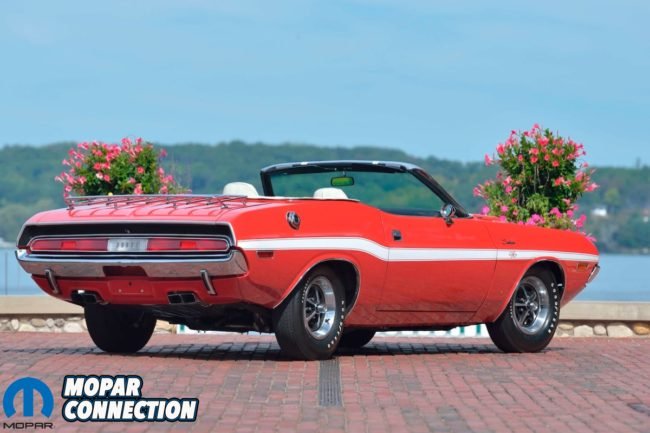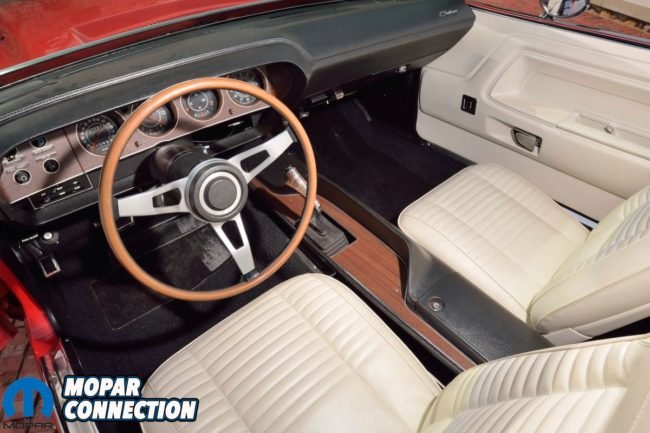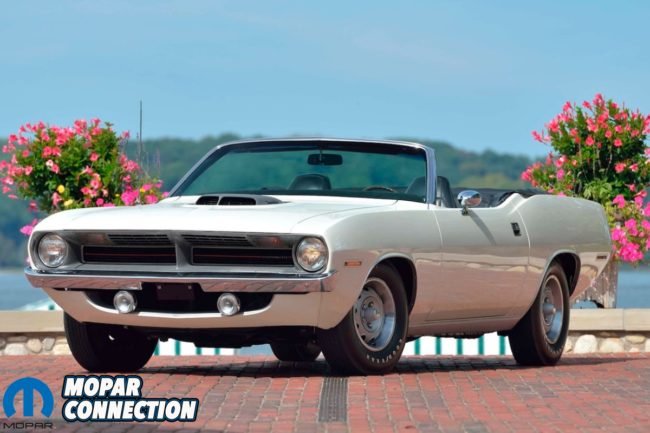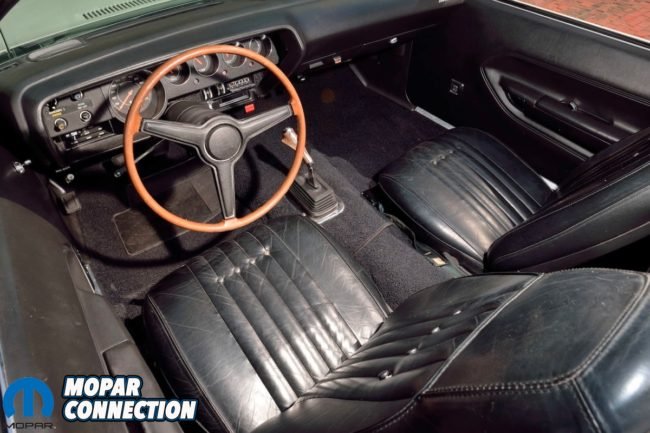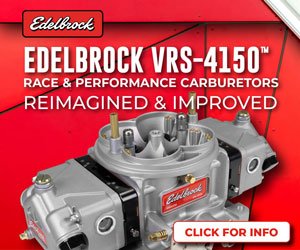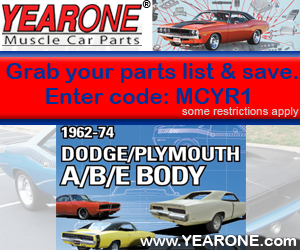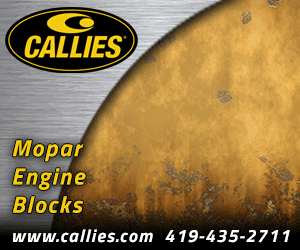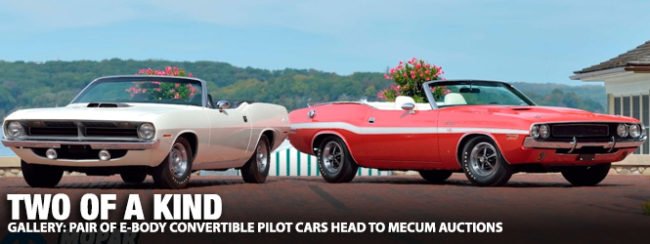
Chrysler’s E-body platform gave birth to some of the most killer muscle cars to hit the streets. With jaw dropping good looks and the option of some very powerful engines under the hood, the Dodge Challenger and Plymouth ‘Cuda quickly became super stars in the automotive world. Today, they remain at the top of the list when it comes to the most desirable Mopars out there. Between the dates of January 5th-14th, 2018, Mecum Auctions will be offering up two professionally restored pilot cars— one a 1970 Plymouth ‘Cuda Convertible and the other a 1970 Dodge Challenger R/T Convertible at their Kissimmee, Florida event. There is one catch though; they must be sold as a set!
Pilot cars are an important part of the Mopar world. These cars were the first examples ever built and were crucial to the introduction of a new model or completely redesigned model year. Pilot cars are pretty much exactly as the term applies; these were vehicles run down the assembly line before regular production began to ensure that everything came together properly as it should. These two drop top beauties are sporting serial numbers 4 and 21 and each car is powered by a V-code 440 Six Pack/ Six Barrel V8 engine mated to a 4-speed manual transmission. Besides the legendary 426 Hemi, you can’t get a better power train combination than that! These two cars both rolled down the assembly line on August 1st, 1969 and hold the distinction of being the earliest known examples of a convertible 440 Six Pack/ Six Barrel ever built; both in Challenger and ‘Cuda forms.
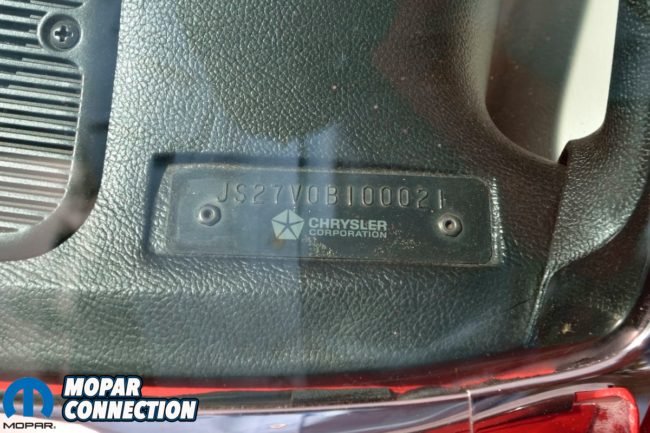
1970 Dodge Challenger R/T Convertible Pilot Car
• Believed to be the first Challenger Convertible produced with the 440 Six Pack engine
• Pilot car used by automotive press
• One of 61 Six Pack Convertibles produced
• Restored in 2004 at Restorations by Julius in Chatsworth, California
• V-Code 440/390 HP Six Pack engine
• 4-speed transmission
• A33 Track Pak
• Power steering and front disc brakes
• FE5 Bright Red with white longitudinal striping
• White and black interior
• Vinyl bucket seats and wood-grain console
• Pistol Grip shifter
• Rallye instrument cluster
• Luggage rack
• Road wheels
• Goodyear polyglas tires
• Chrysler Registry report
• Restoration invoices and photos
• Copy of May 1970 “Dodge News Magazine”
• Copy of December 1969 “Car Life Magazine”
Constructed on Saturday, August 1st, 1969, Serial No. 100021 is one of the very first Challengers ever created and is believed to be the first 440 Six Pack Challenger Convertible built. On top of that, according to research done, only three earlier 1970 Hamtramck built Dodge VINs were known to exist period! This numbers matching example rolled off the assembly line painted FE5 Bright Red (coded on the fender tag as Y91—Show Car finish) with a white top, premium white vinyl interior and white longitudinal striping. Besides the V code and 4-speed, options include the A33 Track Pak, Dana 60 Sure Grip differential with 3:54 gearing, power convertible top, power steering, power front disc brakes and road wheels with Goodyear Polyglas tires.
On the inside, you’ll find a 6-way driver’s seat, Rim Blow steering wheel, center console, Hurst Pistol Grip shifter, power windows, A01 light group, AM/FM stereo and the Rallye dash with a tachometer. The outside is just as beautifully optioned with dual chrome sport mirrors, tinted glass, hood pins, chrome exhaust tips, luggage rack, performance hood and flip-open gas cap. To bring it up to the shape it is in today, the Challenger was sent to the legendary Restorations by Julius in Chatsworth, California back in 2004 and was refinished to the best of quality. Included with the Challenger in the sale are the Chrysler Registry report, a copy of the May 1970 “Dodge News magazine,” a copy of December 1969 “Car Life Magazine” featuring a Six Pack convertible road test and restoration invoices and photos.
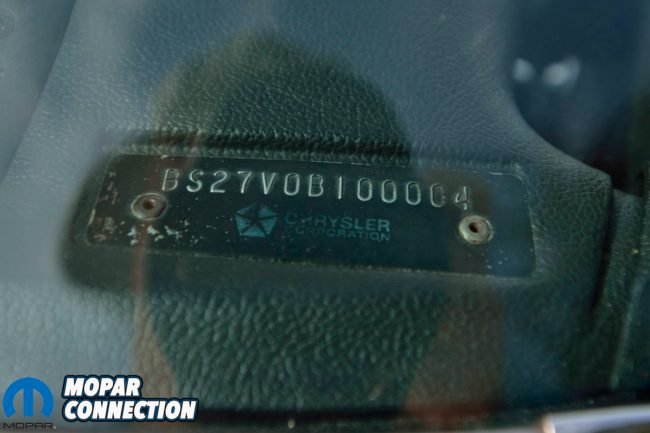
1970 Plymouth ‘Cuda Convertible Pilot Car
• Serial No. 4 Pilot Car
• The first 1970 ‘Cuda Convertible produced with the V-Code 440 Six Pack engine
• Built August 1, 1969
• Restored in 2005 by Rocket Restorations, LLC in Olympia, Washington
• N96 Shaker hood
• Power steering
• Power front disc brakes
• EW1 Alpine White with side-stripe delete
• PRX9 Black leather bucket seats
• Pistol Grip shifter
• Power windows
• Rallye wheels and Goodyear polyglas tires
• Copy of Chrysler Registry report
• Restoration invoices
As mentioned, the Challenger is coming up for auction and sold as a set with its sister; a 1970 Plymouth ‘Cuda convertible pilot car. Wearing serial No. 100004, this ‘Cuda pilot car was job number 8 and may have been one of the first ever to bear the ‘Cuda name according to sources. As stated earlier, pilot cars were used to make sure everything fit properly and to find flaws that needed to be tweaked. Sometimes, they have certain features and components that production vehicles did not.
For example, the dutchman panel on this particular ‘Cuda is not the standard part and is slightly smaller than the production piece. On the fender tag, code V68 was stamped to delete any type of stripe however this code was not used once production began. Painted in EW1 Alpine White, this drop top fish received a Shaker hood, power-operated black convertible top, 14” Rallye wheels mounted on F70-14 Goodyear Polyglas tires, road lamps, driver’s-side remote mirror and chrome exhaust tips. Under the hood also sits a V-code 440 Six Barrel engine backed by a 4-speed transmission and Dana 60 rear end. Power options continue on this one with power front disc brakes and power steering.
On the inside of the car, there are black premium-grade leather seats, power windows, AM/8-track stereo, Hurst pistol grip shifter and woodgrain steering wheel. Oddly enough, despite its options, this car did not receive a center console or Rallye dash. According to sources, there are only two white 440 Six Barrel 4-speeds known to have been built. Restored by Rocket Restorations in Olympia, Washington back in 2005, this fish shows just as good today as it did back then.
We are definitely looking forward to seeing these drop top E-bodies roll across the auction block and will certainly be keeping our eyes on the results of the auction. If you’ve ever wanted to have a pair of perfect twins, this may be your only chance! It doesn’t get much better than this!




